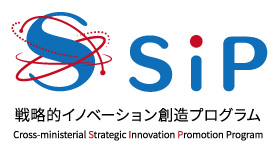A1-01 Development of Plastic Networking for Environmental Transformation Japan for circular economy
Principal Investigator
MUSA Akihiro (NEC Corporation)
Research and Development Overview
Linear economy systems have been causing many international social issues; climate change, environment pollution, biodiversity loss, resource depletion, economic loss, and so on. Recently, advanced nations have begun a transition to circular economy systems from the linear economy systems for sustainable societies. Then, the EU Commission requires digital product passport systems to manage product’s lifecycle.
In this project, NEC Corporation (NEC) has developed a digital product passport system, called Plastic Networking for Environmental Transformation Japan (PLA-NETJ), for Japanese circular economy. The system has wide various data pertaining to all facets of the supply chains, from raw material extractions and processing locations to final product manufacturing sites, CO2 emissions levels, recycled product incorporation rates and so on.
Considering the Data Free Flow with Trust (DFFT), it is imperative to establish mechanisms that ensure the accuracy and trustworthiness of such data. The data confidentiality protection and the decentralized identifier/data system are also important for real enterprise business.
NEC develops the system by using the following technologies:
- Block-chain and e-Seal for anti-tamper.
- Secure computation for confidential data.
NEC has also started verification tests of PLA-NETJ with several companies working on the SIP. Then the tests show that the data management functions of PLA-NETJ are useful for traces of recycled polypropylene materials from recycles to automobile parts manufacturers.

